LOST 041: Ghost Dad
Abandoned babies and surgical ladies while spooky happens in move-y cabins. Pondering the imponderables on mystery island. Unpacking the TV show LOST — Season 4: Episodes 10-11
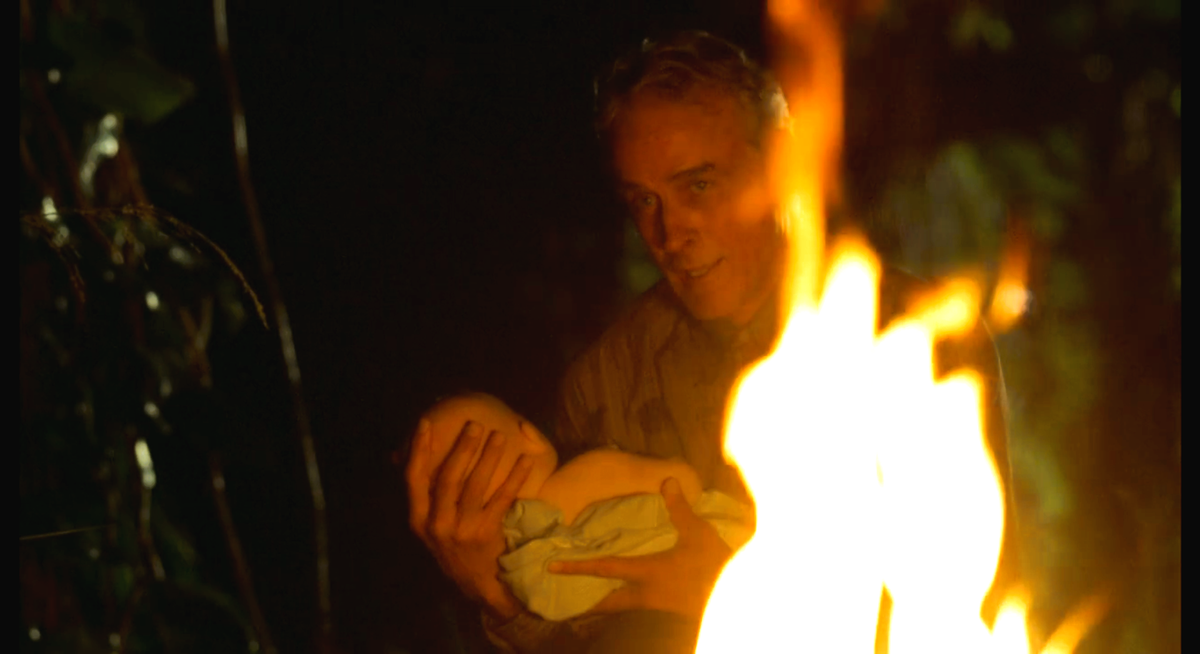
LOST my mind just a couple of times, LOST my mind just a couple of times.
Previously, On LOST: Oceanic Flight 815 crashed on mystery island oh no! Survivors survived, and contended against factions already on the island, and stability was hard to find, but murders were easy to come by. At this point in the series, the struggle has devolved into a bloody delicious faction goulash, but everyone at this point is aware to one degree or another that there are strange forces at play on this here island, and that there are powerful people trying to control it as a result—forces including on-island cult leader Ben Linus, who appears to be aligned with the terrifying black smoke monster that occasionally kills people. Also including Ben Linus' off-island nemesis, the billionaire tycoon and aficionado of fine scotch and emotional manipulation, Charles Widmore. Also including would-be leader of the Oceanic survivors, John Locke, whose hobbies include life coaching, pig hunting, explosions, implosions, and messianic proclamations. The actual leader of the Oceanic survivors, neurosurgeon Jack Shepherd, doesn't want to control the island. He just wants to get everyone rescued off of it, though unfortunately we've seen through copious use of flashback that Jack's obsession is motivated less by altruism and more by an unhealthy desire to prove himself to his now-deceased alcoholic father, Christian. Unfortunately for Jack, the rescue boat currently parked offshore appears to have entered into a sort of deadly time dysplasia due to its proximity to the island, and even more unfortunately for Jack, it has been revealed to be not so much a rescue boat as a murder-everybody boat sent by Charles Widmore to murder everybody. Widmore's murder soldiers just murdered Ben Linus' daughter Alex, for example, along with Alex's mother, Rousseau, and Alex's very favorite Karl, Karl. Also unfortunately for Jack, his tum-tum has gotten whoopsie lately ...
Subscribing to The Reframe is free.
It's tough but fair. Subscribe now for free and never miss an essay. Pay whatever you want if you'd like to support the work of an independent writer. Pay absolutely nothing if you would hate to support the work of an independent writer, or if you can't afford to support the work of an independent writer, what with the economy and whatnot, or if ... hold on. Why am I giving you reasons to not give me money?
O B S E R V A T I O N
I have never thought much about the first of these episodes—or I thought I never thought about it much. It's the Jack's-appendix episode, which resides in my mind next to the Jack's-tattoos episode as containing significantly more Jack than the recommended dose. I had forgotten, however, that this episode contains one of the show's biggest imponderables, and I'd also forgotten the degree to which this episode begins Jack's transformation from a character with whom I am frequently impatient into a character that I find among the series' most fascinating. The second episode we're looking at today is a Locke episode, and it's a great one. It contains another of the show's biggest imponderables.
The show has completed its transition away from an open-ended network series, and now it operates more like a modern streaming series, in a way that is very noticeable on rewatch. What I mean is these episodes depend, structurally speaking, on the writers having worked out the details of the plot in advance, in a way that previous episodes didn't. I'll try to point out a few practical examples as we go, but I bring it up now to note that in the front half of the series, an imponderable is far more likely to be a bread crumb the writers left themselves to generate grist for later episodes within a loosely worked-out narrative framework without having a fully settled rationale yet in mind; in the back half of the series, an imponderable is far more likely to have had a practical story reason at the time it was introduced—which is not to say that those reasons aren't left mostly mysterious (it's that kind of show), but this new flavor makes these imponderables all the more interesting to me, and makes me less likely to abandon them as leftover vestigial story scraps when I can't figure them out.
What are the two imponderables I am referencing, you ask? I thought you'd never ask. Or maybe I never thought you'd ask. Either way ...
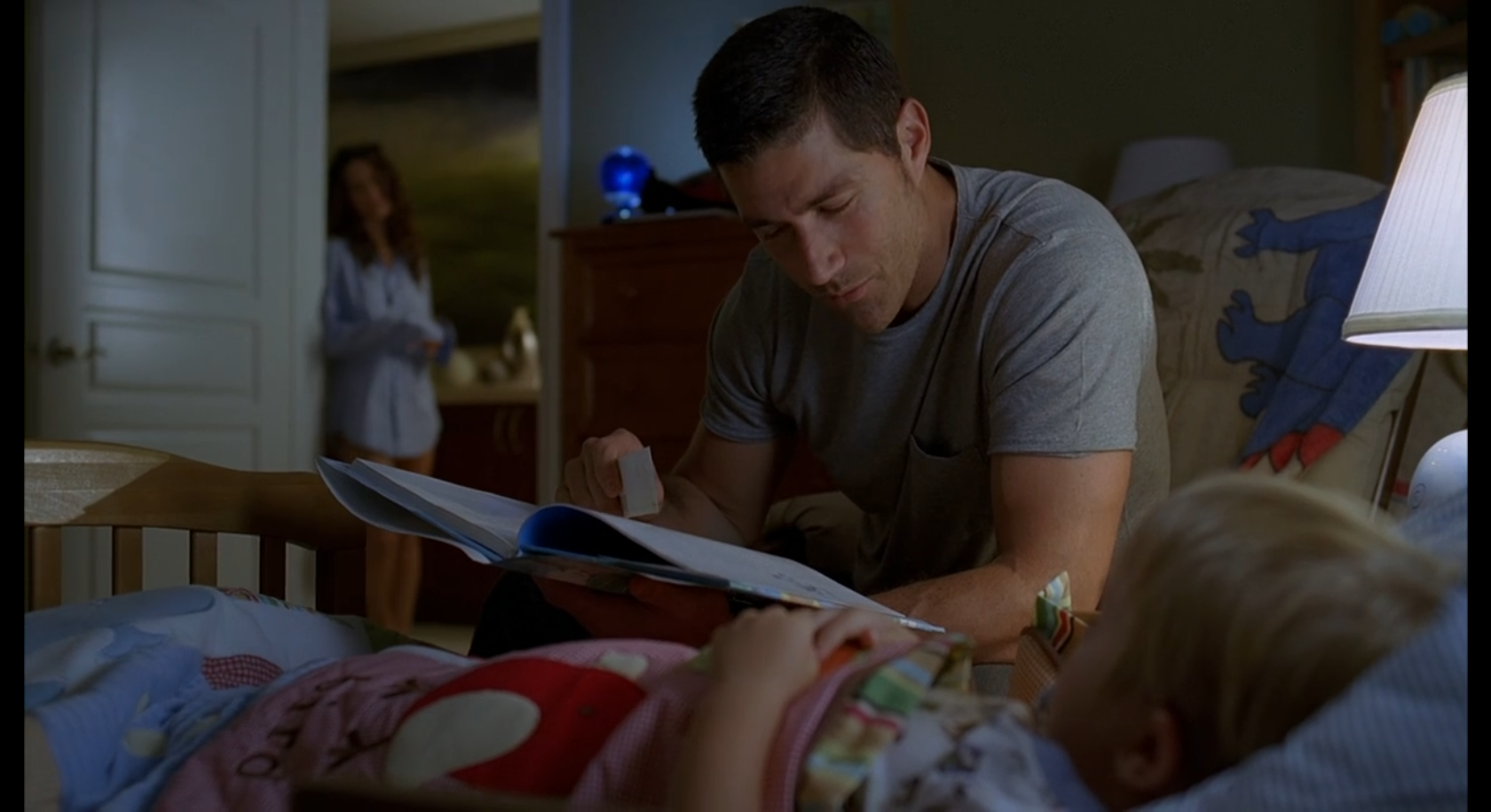
Episode 10: SOMETHING NICE BACK HOME (Jack): In the A plot, Jack has come down with appendicitis, and he's such a control freak that he tries to lead the surgery himself, even though he has a perfectly qualified doctor available (Ben Linus' former lieutenant Juliet, now aligned with the Oceanics). Eventually she rightly has assistant/dentist Bernard knock his dumb ass out, performs the surgery she is fully qualified to perform, and Jack survives despite himself—which we knew he would because he is the hero and also because there are flash-forwards in which he's still alive. It's not much of an A plot; the main point of interest for me here is when Rose points out that hey wait a minute this island heals people (I forgot to mention: this island heals people, including Rose herself), so why is Jack getting sick? Good question, Rose! The answer is that healing is controlled by The Adversary, and The Adversary can withhold healing if It wants to, and It wants to kill all of Jacob's candidates (long story for another day) so It probably would like Jack to become dead, and takes a shot at it. But this is our place for observation, not belief.
However, there's Jacky goodness in the flash forward. Here we learn that Kate and Jack have become romantically entangled in sexy-times and other such activities. It all appears to be domestic bliss at first; Jack reads to Claire's son Aaron (now somehow Kate's adoptive son) at bedtime, and there is canoodling and more canoodling. It will remain perfectly happy, I'm sure. Haha I'm kidding! We already know that Jack is going to turn into a hobo-bearded pill-popping shell of himself. I've been calling the original version of Jack "Jack of Course" to honor his can-do must-do will-do-no-matter-what spirit. To disambiguate, let's call this newer sadder version of the character "We've Got To Go Jack." Here we learn one of the two big reasons why: We've Got To Go Jack has been seeing his dad. Now, this might not seem like a big deal, but let's remember that Jack's dad is a) a seriously malignant influence on Jack's psyche, and, more to the point, b) dead. His empty coffin is back on the island, and we may surmise that his corpse is there, too.
Never mind these little obstacles, though. Christian Shepherd is appearing to Jack-of-Course, and I think we have clear indications that these appearances drive Jack out of his mind. It doesn't help that in this episode, an institutionalized Hurley informs Jack-of-Course that he is seeing dead people (Charlie, mostly), which has led Hurley to reach the same incorrect conclusion as viewers who don't pay attention: They've all been dead all along. Hurley delivers messages from Charlie to Jack, namely: "You're not supposed to raise him" and that Jack will be receiving a ghostly visitor soon, just like Hurley has. This causes Jack to drive home and propose marriage to Kate while wearing his Jackface, which is a sort of combination of grim resolve and suppressed fear.
Night time at the hospital. In a deserted waiting area, Christian appears to Jack directly, but all he says is "Jack" before they're interrupted and Christian is gone. Jack immediately starts up with the pills, and before long he has an ugly fight with Kate, ostensibly because she is sneaking around doing something she won't talk about (it will later come out that she's helping Sawyer's daughter Clementine), but which eventually lands upon Jack's misgivings regarding the validity of her adoption of Aaron ("you're not even related to him!" he shouts). Afterward, there is far less canoodling or domestic bliss to be found, but there are a lot of tears and there is a broken engagement and Jack grows out his stubble, pushing his skiff off the shores of sanity toward empty-husk town.
Meanwhile, back on-island, the remaining Locke faction has broken up in the aftermath of the murder soldier attack, which left most of them murdered, particularly if they didn't have speaking roles. Locke and Hurley and Ben have gone off looking for the cabin allegedly inhabited by Jacob. They'll be the A plot next episode, but they don't appear in this one.
The Locke defectors are heading back to the beach. These are Oceanic survivor Claire, her newborn baby Aaron, and non-murderous-Widmore-freighter newcomer Miles. This group is led by Sawyer, who is leaving his antihero era and entering his hero era. Miles' psychic powers get triggered, and they find Rousseau and Karl's shallow graves, which serves to remind us of the increasingly important point that there are ghosts on this island. Later Sawyer and Miles, as the top shit-talkers on the island, engage in a talkin'-like-this contest. (Sawyer mostly wins. He wanted it more. Also he's the one with the gun.)
Later on, they encounter non murdery freighter helicopter pilot Frank, who is being tailed by the murder soldiers, given that he is their ride back to the boat. It's notable that the black smoke, who was clearly capable of killing all of the murder soldiers, has killed approximately none of them, though one of them appears badly injured, so I'll name that one Badly Kurt. Frank manages to hide our heroes and keep the murder soldiers from discovering them, so good for him.
Night time. Claire awakens to see Christian Shepherd cradling Aaron by the campfire. "Dad?" she says, which is how we learn that Jack and Claire are half-siblings. Jack doesn't know this yet, but—per his argument with Kate—we can surmise he finds out later. Oh snap. That in my opinion is the second thing that sends Jack round the bend. It certainly explains the awful thing he said to Kate about Aaron, though it doesn't excuse it.
Next morning Sawyer discovers that Claire has disappeared, which is concerning. Even more concerning: She's left behind Aaron, who is of course her son, but also is her only remaining connection to the plot.
End of Episode 10.
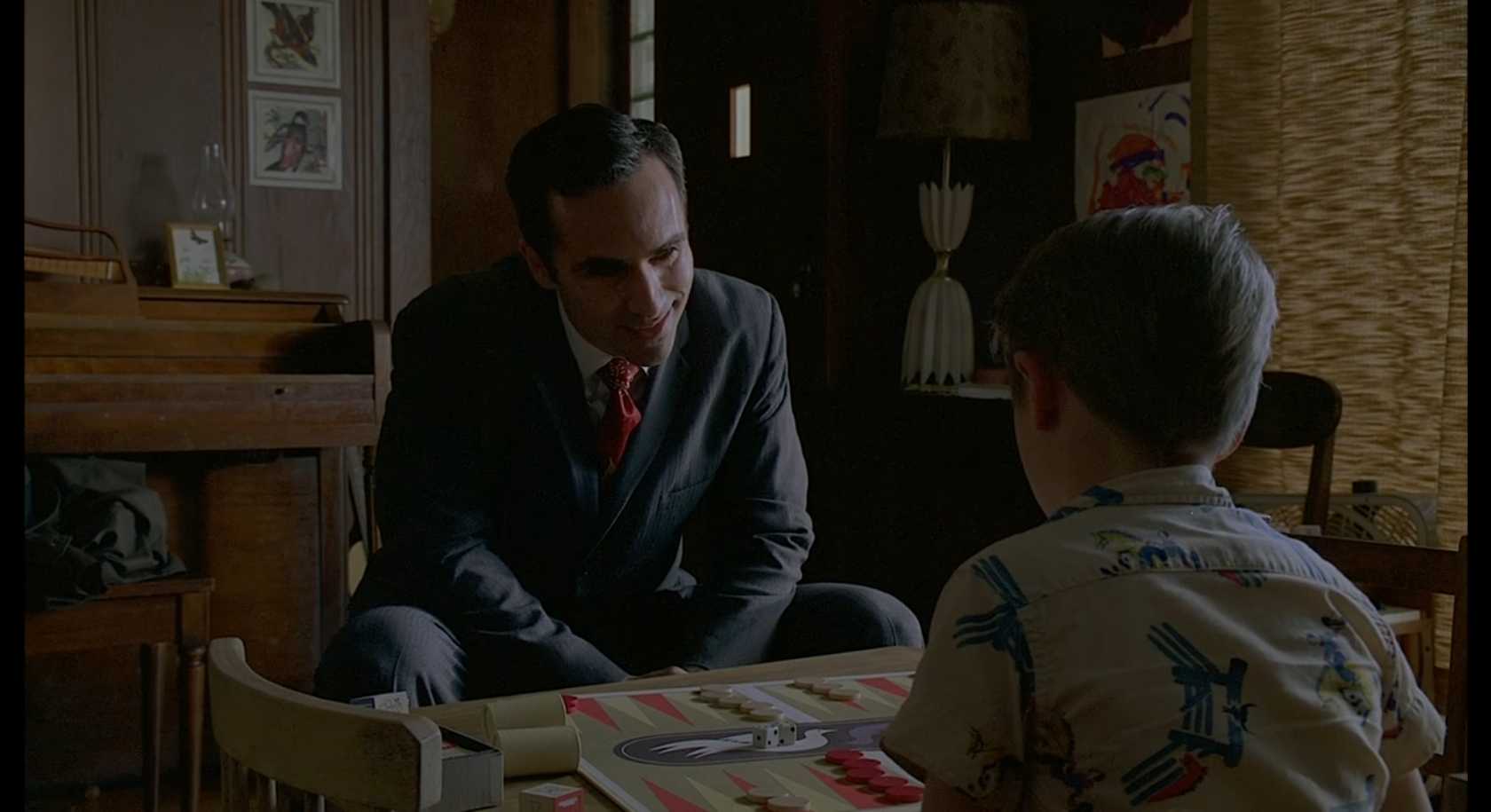
Episode 11: CABIN FEVER (Locke): What's this? Flashbacks? In Season 4? Blasphemy. Good thing they're really good. It's the life of John Locke in 5 scenes.
Scene 1: A young bobby-soxer named Emily is getting herself ready to go out and meet a gentleman caller who is "twice her age," per her disapproving mother. Mother and daughter argue, and the daughter runs out into the road where, because this is a TV show, she is immediately struck by an automobile. Turns out daughter is in a family way, and the accident, while not fatal, precipitates what must be the most premature birth of 1956. Also we learn it's very very important to Emily that her baby be named John. Welcome to the world, John Locke.
Scene 2. Some weeks later, we learn that premie John has survived—a miracle baby. Emily, offered a chance to hold her child for the first time, panics. "I can't do this!" she says. Tsk. Babies having babies who will grow into men who resemble babies. Emily runs out, and we see that ageless voice-of-Jacob Richard "Ricardus" Alpert is watching through the nursery observation window, smiling like a real creeper.
Scene 3. Years later. John is a young boy living with a foster family. He's playing backgammon (shout-out to episode 1) when he has a visitor: It's Richard again. He runs a special school for talented youngers, just like Professor X. Richard thinks John might be special, a belief that seems reinforced by the drawing John has made of a man being attacked by a creature that appears to be made of black smoke. Richard puts John to a test: Spreading out an array of seemingly random objects, he asks the boy to "pick the one that's yours already," so we've gone from X-Men to the Dali Llama. John picks a knife. Richard is visibly disappointed and kind of a dick about it. He leaves immediately, abandoning John to years of being treated like shit by his peers.
Scene 4 : High school. An interested teacher gives bullied teen John a chance to join a science camp in Portland run by Mittelos Labs—Richard Alpert is recruiting and apparently has thought twice about his hastiness—but John turns down the opportunity. He isn't interested in science; he wants to be a man of action. What's most interesting to me about this is that it's proof that Mittelos precedes Ben Linus's tenure as Jacobian leader, and possibly Charles Widmore's, too. (Who founded Mittelos? Was Dharma Initiative financier Alvar Hanso also a former exiled Jacobian leader? Great questions!)
Scene 5. A hospital, where Locke is having a mostly unproductive and discouraging physical therapy session after his injury. Afterward, Matthew Abaddon (the mystery man previously seen terrifying Hurley and briefing Naomi) poses as an orderly and plants the idea of a walkabout in his head.
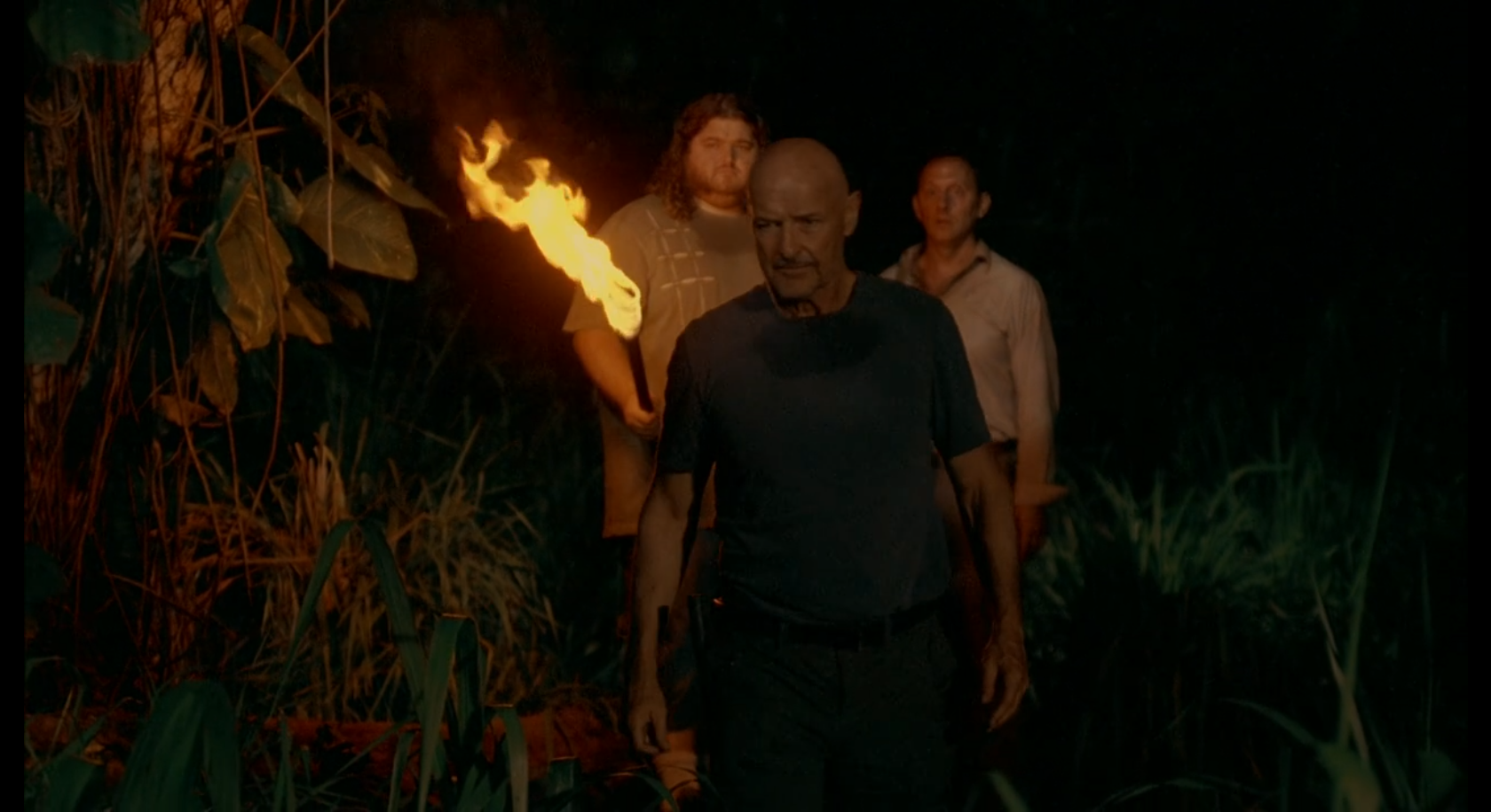
On-island, the three amigos (Locke, Ben, and Hurley) are looking for Jacob's (or "Jacob's") cabin. Locke thinks he's following Ben, until Ben tells him he's following Hurley, because Hurley is the last one who saw it, and Hurley's like "uh I'm not even in front dude" and they all give up for the night.
In the morning, Locke awakes to noise — it's Horace, the (long-dead) director of Dharma island operations. He's cutting trees to "build a little getaway for me and the missus." He's also aware that he's long dead. "You gotta find me, John," Horace says. "And when you do, you'll find him. Jacob. He's been waiting for you a real long time." Then Locke awakens again—as one might have guessed, it was a dream. But Locke's been guided by dreams before now, so he has no qualms about following another. "I used to have dreams," Ben sniffs. Hmm. That's interesting.
Locke isn't going to the cabin, it turns out—he's going to the Dharma mass grave. Ben looks appropriately apprehensive about having his mass murder exposed. Hurley quizzes Ben on the topic, and Ben claims that though the Jacobians did wipe out the Dharma Initiative, the decision was that of the Others' leader. This is the first mention (I think) of a previous Jacobian leader, and we'll eventually learn that this previous leader was Charles Widmore, a known fan of mass extermination, so I actually believe Ben's claim here. In the mass grave, Locke finds Horace's body, and in Horace's Dharma-issue coveralls he finds a blueprint for the cabin (a blueprint? for a cabin? just go with it.) I guess this blueprint includes a map; in any case The Gang Heads Cabinward, following promises of things Locke claims he was told. "I was told a lot of things too," Ben says. "That I was chosen. That I was special. I end up with a tumor on my spine and my daughter's blood all over my hands .... These things had to happen to me; that was my destiny. But you'll understand soon enough that there are consequences to being chosen. Because destiny, John? Is a fickle bitch."
They're interrupted by Hurley, who has found the cabin. 'My time is over," Ben tells Locke. "It's yours now." Locke enters the cabin alone.
Let's cut to the B plot, which takes place on the freighter. The murder soldiers and Frank have returned to the boat via chopper and they're plenty pissed, particularly since Badly Kurt is now all-dead, and there's nothing left to do but go through his pockets and look for loose change. Chief murder soldier Keamy goes on a rampage; he attacks the captive Michael (whose sabotage mission was uncovered last time we saw him) and tries to shoot him in the head. No good; the gun jams. "The island" still won't let Michael die. Keamy next retrieves a secondary protocol from the captain's quarters. The new plan is to "torch the island." The captain doesn't like the sound of that, and helps Sayid escape in the dinghy. Heh heh heh. Dinghy. Off goes Sayid to rescue-ferry their friends to the freighter as the season-finale action music plays for the first time. Desmond stays on the freighter, vowing to never return to the island again (lol).
Frank, unwilling to be an accomplice to mass murder, refuses to fly the murder soldiers back to the island. Keamy knows he can't kill their only pilot, so he pulls out his knife and kills the doctor instead, pushing him overboard. We know the doctor's corpse will eventually wash ashore on the island yesterday (this sentence is brought to you by time travel). Keamy promises to kill another person every minute if Frank doesn't comply. The captain pulls a gun on Keamy, and Keamy kills the captain. RIP captain. You were made to seem like such a terror, and then you showed up and were mostly cool. That was confusing.
Facing complicity in murder either way, Frank agrees to fly the soldiers to buy some time, but he throws a bag containing a tracker onto the beach as he passes over, giving the location of the murder soldiers to our heroes so they can keep away. Fast thinking, Frank. On the beach, a recovering Jack receives the tracker and decides "I think they want us to follow them." Slow thinking, Jack.
Back to the cabin, inside which Locke finds Christian Shepherd, who says he can speak on Jacob's behalf. Christian asks John if he knows why he, John, is here. "I'm here because I was chosen to be," says Locke. "That's absolutely right," whispers Christian.
Realizing they aren't alone, Locke swings the lamp around. It's Claire. "I'm with him," Claire says, seemingly totally unbothered. "The baby's where he's supposed to be," Christian says. "And that's not here. It's best if you don't tell people that you saw her. But we don't have time for this, so why don't you ask the one question that really matters."
Locke asks Christian how to save the island.
Outside, Hurley shares a candy bar with Ben. It's a great little moment. Locke emerges, and tells them he has been given the answer.
"He wants us to move the island."
End of Episode 11.
The Reframe is a reader-supported publication with a pay-what-you-want subscription structure. Free or paid, everyone gets the same newsletter, because those who can afford it pay. If you would like to support my work, and if you can afford to, consider upgrading to paid.
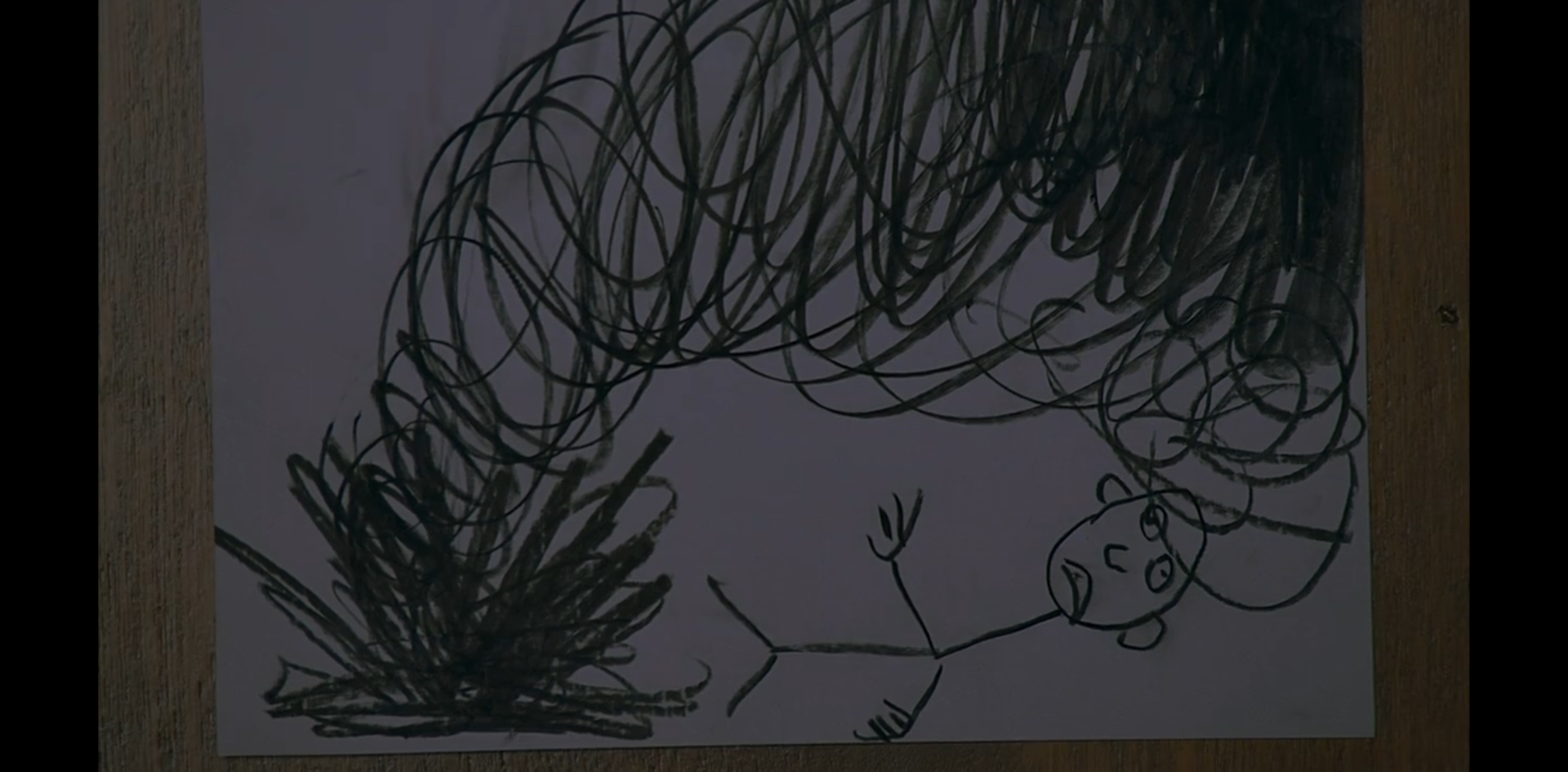
B E L I E F
I like to start with easy questions, so let's do that.
1) The murder soldiers survived? Watching this episode as it came out, this really bothered me. How could they survive such an attack? Well, I now believe their survival is an answer in and of itself. The Adversary didn't kill them either because It isn't permitted to or it It didn't want to. Both may be true, but I believe in this case it's more the latter than the former. What we will see over the course of this season and the next are The Adversary and The Island moving their human pieces in their larger game of 10-dimensional chess, and while The Adversary didn't want the murder soldiers to murder Ben and Locke and some of the other pieces on the board that It still needed as a key part of Its strategy, neither did It want the murder soldiers dead, because they also were a key part of Its strategy.
We've dug into The Adversary's strategy before. Let's do so again ...
2) John Locke, Man of Destiny. Throughout "Cabin Fever," we see a Ben Linus who is coming to grips with the fact that the destiny that swallowed him has passed him through; that his time is over, and Locke's ascendance has begun. There's a lot of quiet bitterness. ("I used to have dreams.") Ben very clearly believes that he was chosen by Jacob and has now been abandoned by him. Locke, meanwhile, clearly believes that he was chosen, and The Adversary/Christian is more than happy to agree.
But we will learn that Ben was never chosen by Jacob, and neither was Locke. Ben was chosen by The Adversary, and so was Locke. Born in different decades, but they're twinned brothers all the same. Both men were born premature, both raised without their birth mothers and watched over from afar by figures from the island. They've both been groomed by The Adversary, just as It once long ago groomed another pair of brothers (twins of course), and, now just as then, though It intended to enslave both to Its plan, The Adversary showed preference to the dimmer more obedient brother, rather than the wilier, smarter brother. And, now just as then, this caused a deep and murderous resentment to grow within the heart of the passed-over brother, which was exactly why it was done.
Here we come to the heart of The Adversary's plan. Despite its complexities I believe we can boil it down to this: The Adversary wants to destroy everything by destroying the island. To do this, It must either convince people to drill into the heart of the island (and we see several attempts at this) or kill the island's protector, Jacob. However It is forbidden both from killing Jacob or accessing Jacob's hidden sanctum. It needs a human "weapon" willing to murder Jacob, and It needs a key that will open the door to Jacob. Ben Linus is the weapon, and John Locke is the key.
In the guise of the dead, through waking apparition and dreams, The Adversary convinced Ben Linus that he had been chosen by Jacob, and allowed him to craft a life of consequence and a small family, and then, after years of giving him what he most desired, abandoned him, taking everything away, while leading him to believe that he has been abandoned not by The Adversary, but by Jacob. And so Ben Linus is being sharpened into the weapon The Adversary needs.
In the guise of the dead, through waking apparition and dreams, The Adversary has convinced John Locke that he has been chosen by Jacob. Through manipulation of both John Locke and time, we will see The Adversary convince Richard Alpert— who alone has been given access to Jacob's sanctum—that John Locke has been chosen by Jacob. Having accomplished this, we will see It lead Locke into a deadly trap that allows It to assume Locke's form. And so John Locke is being crafted into the key The Adversary needs.
The rest of it is just moving pieces around.
What we're shown here beyond doubt is that the entities playing this game have, without his awareness, been manipulating the life of John Locke from his birth. This invites us to believe, as I do, that the same is true of Ben Linus.
And so it appears that John Locke, a miracle baby who has miraculously survived a deadly fall, is somebody the island won't let die. And it appears that Richard Alpert, the voice of Jacob, who has served as spiritual advisor to one leader of Jacobians after another, has taken a lifelong interest in John Locke. And it appears that John Locke also has the attention of Charles Widmore, who sends his employee, Matthew Abaddon, to make sure that Locke gets the needed inspiration to get where he needs to get. (Shades here of Widmore ensuring that Desmond gets where he needs to be.)
And of course Locke has the attention of The Adversary. I believe Locke's dream is the same sort of dream The Adversary once bestowed upon Ben Linus, and the Horace Goodspeed within the dream is The Adversary, as are all the figures within the other strange dreams we've seen Locke have, as is the Christian Shephard he finds within the cabin. Goodspeed's claim that finding the cabin will lead to Jacob is a lie, and so is Shephard's claim to speak for Jacob—and these are the same sorts of lies It once told Ben Linus. I believe dreams like this are probably how It invites people to Its cabin.
Speaking of the cabin ...
3) What is the cabin? Earlier I mentioned two imponderables. This is the first. What is the cabin? What is its significance?
I don't know. I'll tell you what I believe based on the scant available evidence. We will learn that The Island/Jacob have established places within the island that are difficult to find unless you are drawn, invited, or permitted, in much the same way as the island is difficult to find. There is a cave filled with light, and a lighthouse, and a temple, and a room inside a pedestal, and all of them seem to exist in folds within time and space that others—even The Adversary—cannot detect.
These places act within the island much like the island itself acts within the world, I now realize. That might be instructive. As above, so below.
I believe that, just as Jacob has crafted his secret spirit places, The Adversary has crafted Its own. The Adversary has a dark cave with numbers written on walls, for example, where It tracks Jacob's candidates. And dreams and occasional appearances are all well and good, but for real grooming of your special chosen game pieces you need seclusion—"a little getaway for me and the missus," you might say. I believe The Adversary has made a special hidden place where it can pose as somebody else—somebody who can speak on behalf of Jacob—and really get down to the business of enthralling. A cabin. How many trips to this cabin has Ben made? What face did The Adversary wear for him there? Did It tell Ben that It was not Jacob but could speak for him? I believe It did. What truths did It tell Ben, and what lies?
Ben wrongly believes that the cabin is Jacob's. The conclusion makes sense; first, that's what he is told, and while Ben is a suspicious sort generally, he's exceedingly credulous about the island. Also, the cabin is sometimes there and sometimes not, sometimes here and sometimes there, and not everyone can find it. These are very Jacob-y qualities for a place to have.
"You're here because you can see the cabin and that makes you special," says Ben to Hurley. "I think we're the craziest and that's why we can see it," Hurley says to Locke. Neither of these explanations is entirely wrong; neither is entirely true.
I believe Hurley can see it because Hurley is most attuned to the spirit world, and Locke can see it because he has been invited by its owner. Ben can see it because his companions can see it. Once upon a time, he could see it by himself, because he was the invited one. Ben's own inability to find it anymore would serve as another proof to him of his abandonment by Jacob.
4) Why does the cabin move? The island moves, as we're about to see—so is it another "as above, so below?" Is the cabin like the island in this way? Maybe. It's not explained, but the island's secret places do act like the island in many ways. So maybe it's that.
But maybe the cabin doesn't move at all. Let me show you something.
Here is the cabin that Ben Linus first takes Locke to, which is ringed by soot.
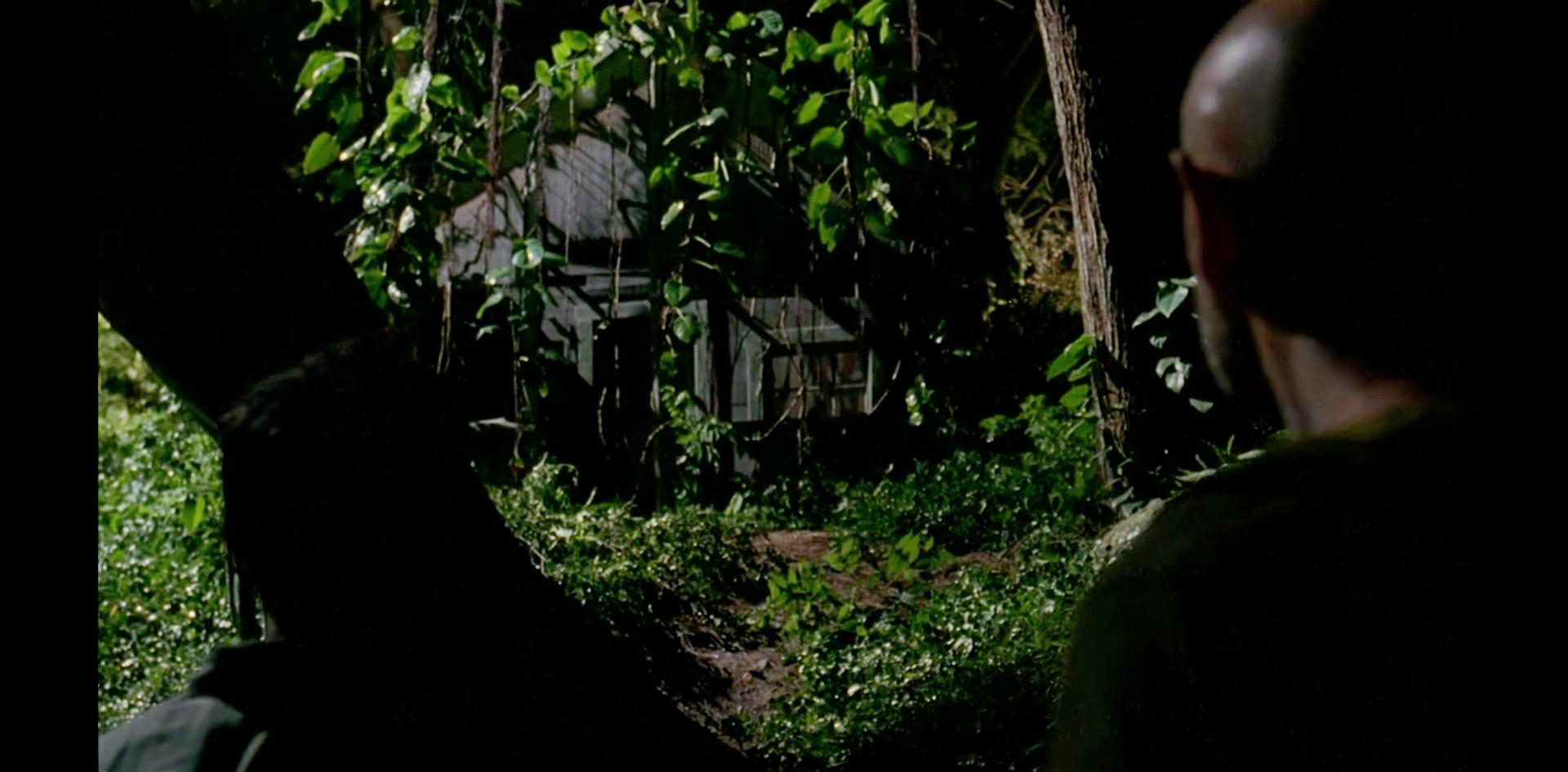
Here is the cabin that Hurley first sees. If there is a ring of soot around it, we aren't shown it.
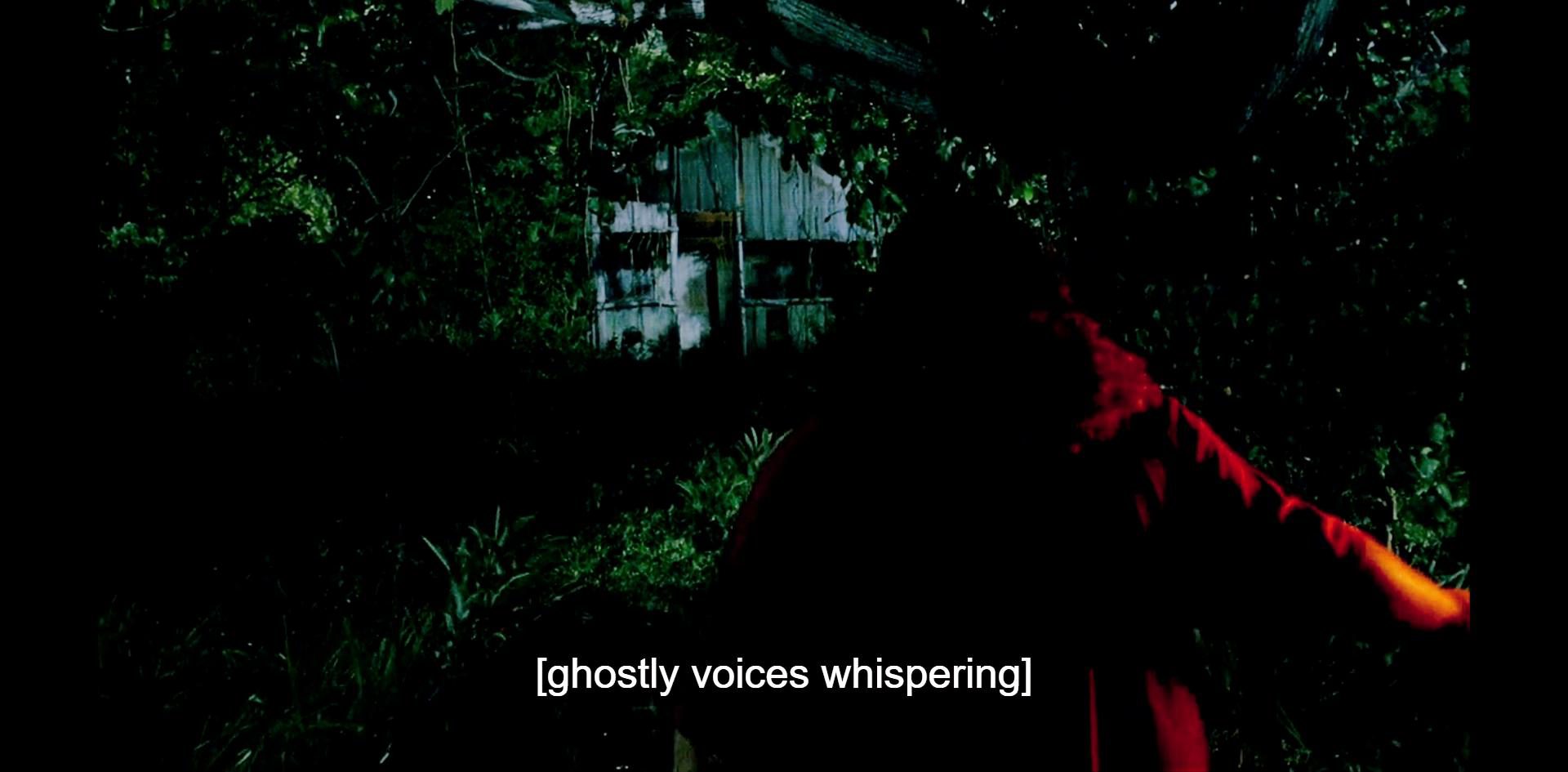
Hurley runs away from that cabin and immediately encounters ... another cabin. Ring of soot? Not so much.
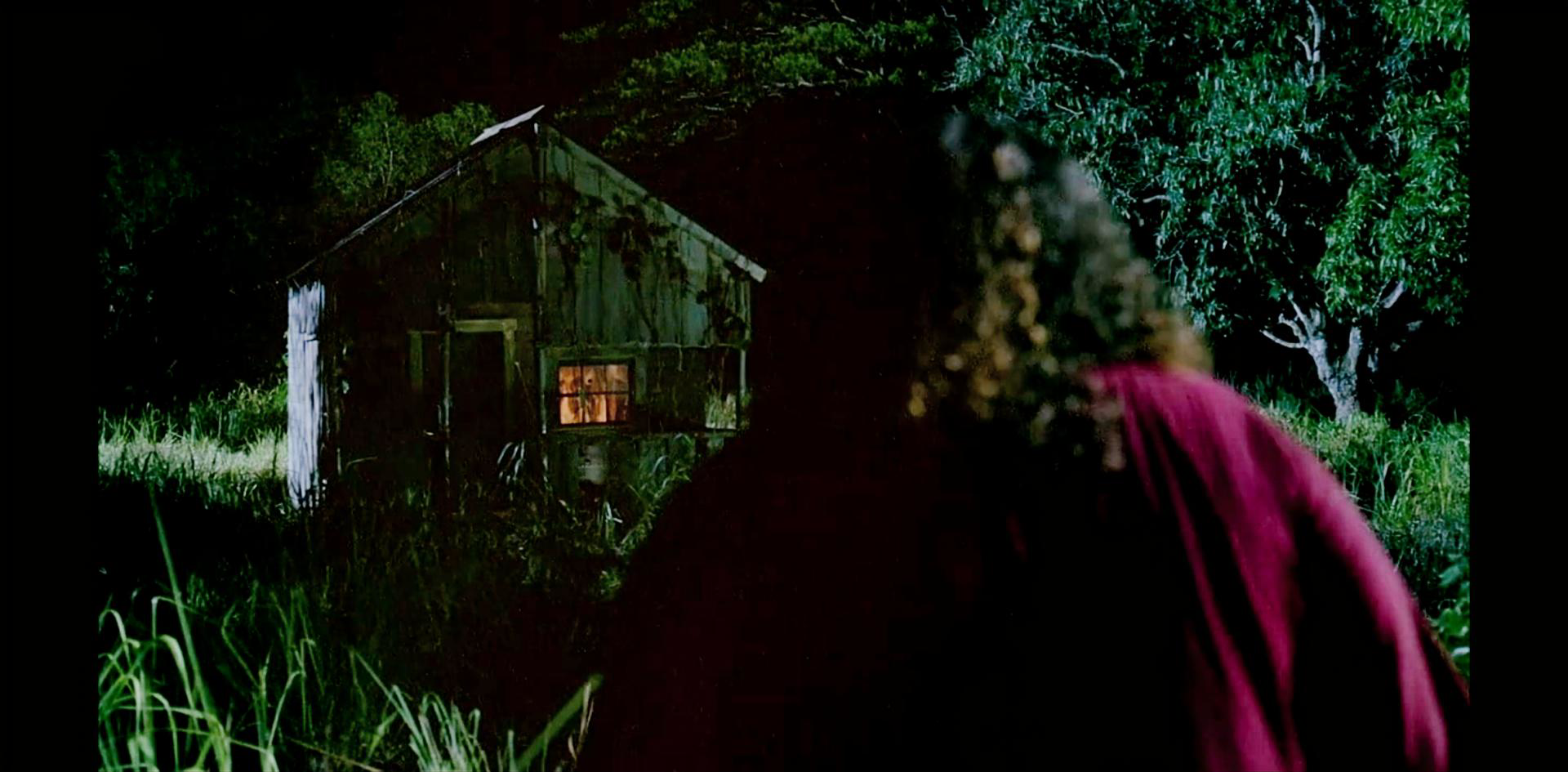
And here is the cabin to which Locke guides Hurley and Ben. Again, no ring of soot noted.
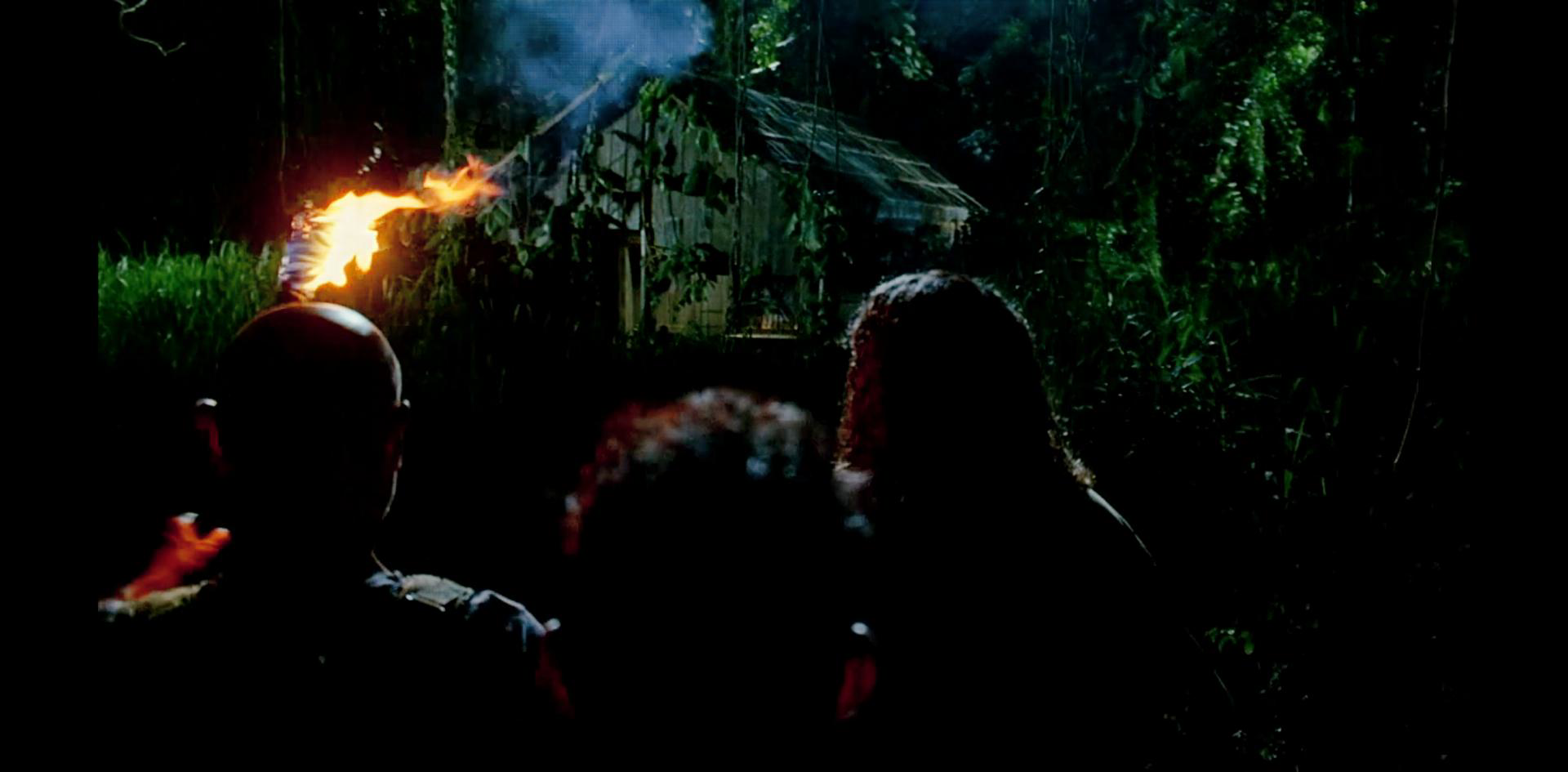
In a future episode a bunch of people who we mostly haven't met yet are going to come to a cabin that is ringed by soot. Here it is.
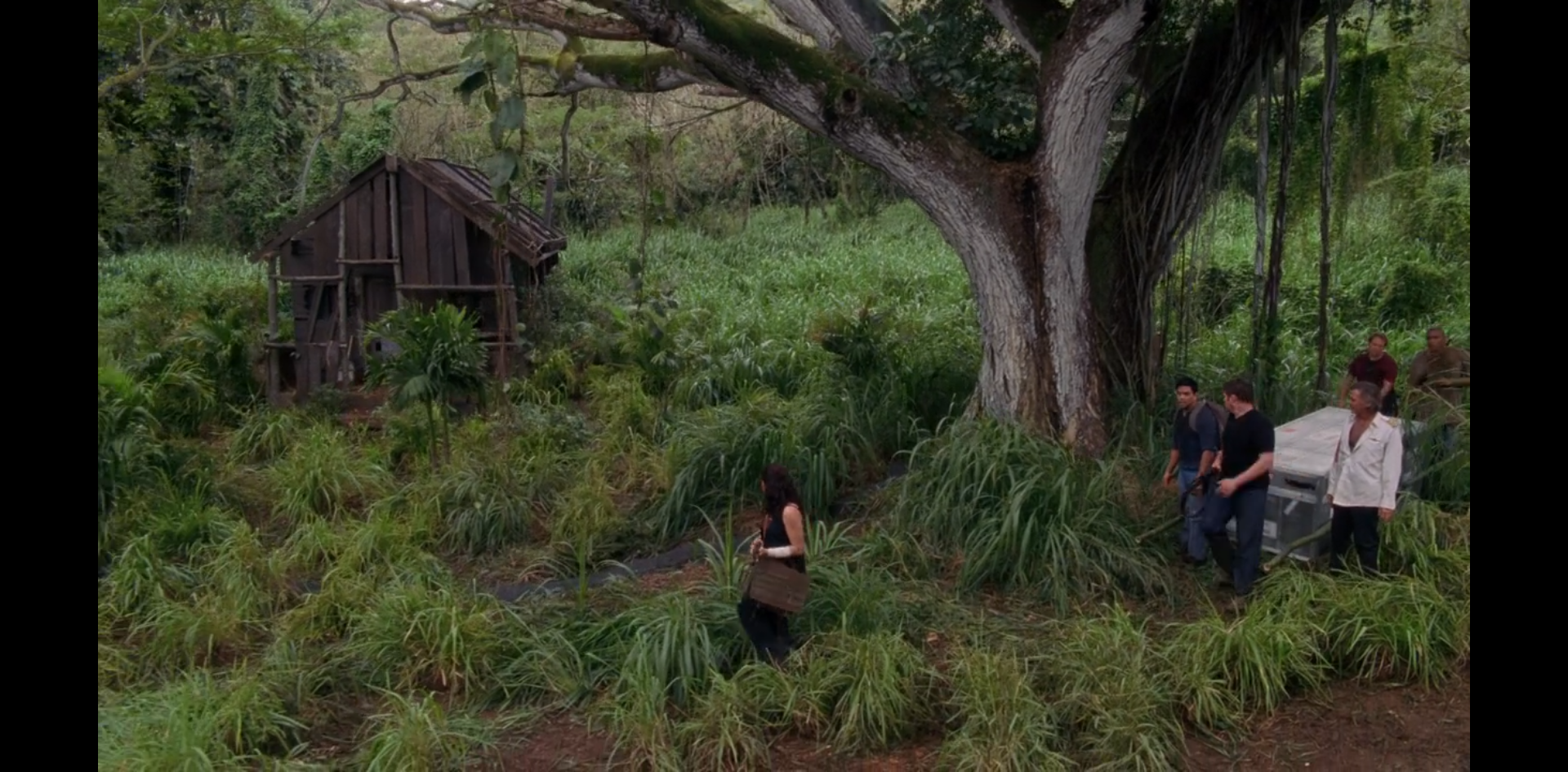
Maybe I'm crazy, but to my eye these don't appear to be identical cabins. They appear to be similar cabins. Maybe a couple of them are identical? The season 4 set decorator could probably blow up this whole cockamamie idea in a second by saying "that's crazy, we only built one cabin and moved it around."
But maybe The Adversary has multiple cabins. Maybe sometimes when It enthralls somebody, It has the thrall build a cabin to dimensions specific enough that the builder actually feels compelled to make a blueprint. Not every time; I don't see evidence that Ben or Locke built a cabin. But sometimes. Maybe.
If this is true, Hurley didn't find the cabin Ben knows about in a different place; he found a different cabin, then ran away from it, and saw a third cabin, and then later Locke brought them to one of those three, or maybe a fourth.
I'm not asking you to believe that. Just think about it; it's fun.
5) Off-Island Christian. There are on-island ghosts and now we've got off-island ghosts. These off-island ghosts, and what they're doing, are the second imponderable.
We learn in this episode that Hurley meets regularly with Charlie's ghost, and we see numerous encounters between Michael and what I imagine to be Libby's ghost, so I believe that we should take it as given that Jack is also having many encounters with a figure claiming to be his father. Remember the Season 3 finale, when we get our first look at We've Got To Go Jack? It's a moment further on than the one we see here, when Jack has been brought to his lowest point. At this time he tried to fill a prescription in his father's name, and he shouted this at the new chief of surgery: "You get my father down here, and if he is drunker than me you can fire me!"
I believe this is more than just the pills addling Jack's mind into hallucinations. He's been seeing the figure of his dead father. Add Hurley's daily visits from Charlie, and I think the suggestion is that these visits are frequent. I believe that by the time we see him in the S3 finale, the pills have left Jack fried enough that he's actually rather unwisely talking about it to people who know Christian is dead.
So who is this off-island Christian Shepherd? I see three possibilities. One is that this is The Adversary, who certainly appears in the guise of Christian on the island. The other is that it is The Island. And the third possibility is that they are the spirits of the people they seem to be.
I don't believe it is The Island. I believe It possesses the power to do something like that, but we never see It actually do anything like that. What we do know about The Island is that it is very reluctant to directly interfere. This just doesn't seem to be It's style.
It would make much more sense for the off-island ghosts to be The Adversary. After all, most on-island ghosts are The Adversary. Also, these ghosts are influencing our heroes to return to the island, and this is very much a part of The Adversary's plan. However, we will learn that It can't leave the island, and It's desire to escape those confines is a primary motivation for Its machinations. It would seem unlikely that It can extend It's influence beyond those confines. But more than that, from what little we see, the vibes are not Adversarial.
I believe it is the third option. I think this Christian is Christian.
I made my case already that I think the figure of Charlie is actually Charlie's spirit. It's a confident and relaxed version of Charlie that seems to have achieved a certain level of self-actualization. It seems like the sort of spirit that might have been working with The Island to overcome their unfinished business so they can move on, which is exactly what we will learn Hurley is up to at the very very end.
I think that these ghostly figures are versions of themselves working with The Island before moving on. They might be The Island, but showing up Itself to interfere doesn't appear to be The Island's style.
And what has Jack's father been telling him?
We're never shown any of these encounters but the (mostly) wordless first. But ... I mean ... if I had to guess, I'd guess that Christian has been telling Jack "you've got to go back." That would fit the behavior of the We've-Got-To-Go-Jack we see him become, right? And that seems to be what these off-island ghosts mostly do; appear to people who still have business with the island, that is, and urge them back to that destiny. "You're not meant to raise him" is Charlie's message to Jack. Jack takes it as an indictment of his worthiness. I believe it's simply a statement of fact: Jack has a destiny, and he has to get back to it.
This leads me down real fun levels of pure speculation; things I don't even believe but which I think would be fun if true. Things like: Who else has received visits? We learned last time that Charles Widmore has been sleeping with a bottle of Scotch by the bed "since the nightmares started." Who has Widmore been seeing? If I had to guess, I'd guess he sees the spirits of Dharma Initiative members and everyone else he's killed. Old Horace Goodspeed and the rest.
What about Eloise Hawking? Who would she be seeing? If I had to guess, I'd say the spirit of her son, who she killed. If you know, you know.
What about the psychic who told Claire that her baby should not be "raised by another" (or "an other")? Has he been visited? By whom? And told what? What about Emily Locke? Who told her that her son's name had to be John? Who is Locke's father, anyway? While we're here, what about John Locke himself? He drew the black smoke as a child—how? (Honestly if I were Richard this drawing would have been enough for me, I would have brought him back to the X-mansion, botched test or no botched test.) Who visited him? Who appeared to him in dreams? I have a guess as to the answers, but I'll save it for another time. If you want a hint, find a 12-minute mini-episode called "The New Man in Charge."
One last thing. The off-island ghosts come to our heroes and convince them to fulfil their destinies ... yet we will also learn that, as with Ben and Locke, these are all destinies that are largely manufactured by The Adversary, in order to further the plot of his very long con.
If I'm right in my beliefs, it means that off-island, away from The Adversary's influence, The Island is exerting its influence—not letting certain pieces like Michael or infant Locke die, sending spirits as advocates, and so forth.
In a competition, this ability to influence events where your opponent cannot would represent a massive advantage ... yet The Island seems to be using that advantage not to thwart The Adversary's plot, but to advance it.
It's so interesting: The Island's game appears to be ... to let the Adversary play his game. The Island doesn't seem as interested in winning or losing.
The Island is interested in progress.
L O S T
Next Time: I Like to Move It Move It
The Reframe is totally free, supported voluntarily by its readership.
If you liked what you read, and only if you can afford to, please consider becoming a paid sponsor. If you'd like to be a patron of my work, there's a Founding Member level that comes with a free signed copy of one of my books and thanks by name in the acknowledgement section of any books I publish.
Looking for a tip jar but don't want to subscribe?
Venmo is here and Paypal is here.
A.R. Moxon is the author of the novel The Revisionaries, and the essay collection Very Fine People, which are available in most of the usual places, and some of the unusual places. You can get his books right here for example. He is also co-writer of Sugar Maple, a musical fiction podcast from Osiris Media which goes in your ears. His name is August West, and he loves his Pearly Baker best.

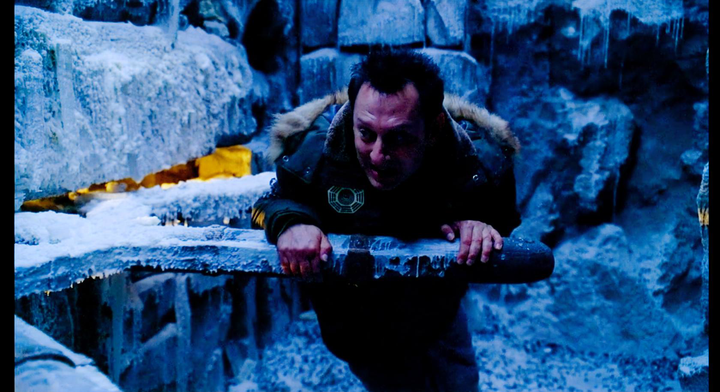
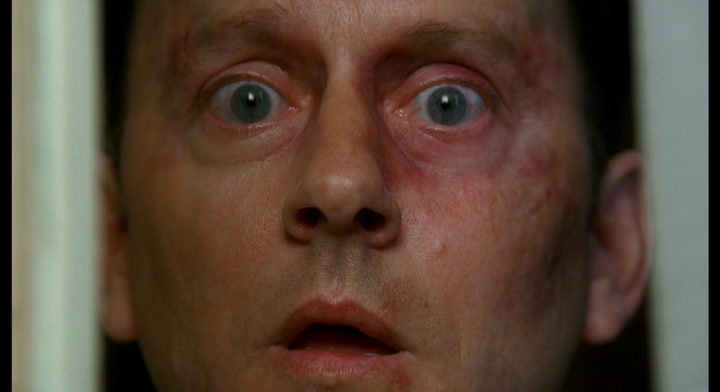
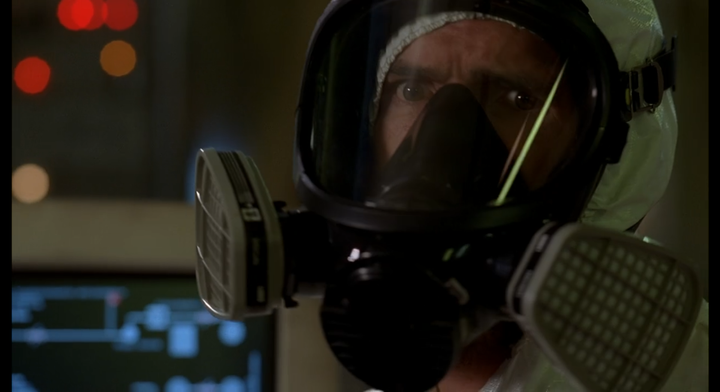
Comments ()